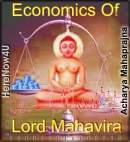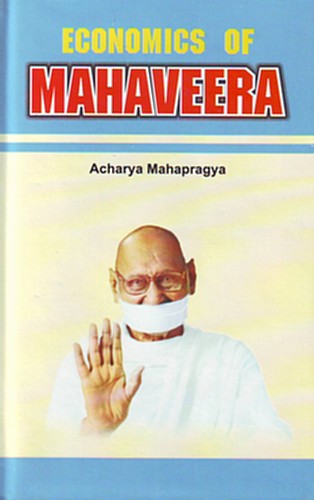
Persons who earn wealth with the help of abnormal and questionable means only generate animosity and rancour.
An individual who is dazzled by wealth does not get any relief from wealth, like a person whose lamp has blown out in a dark cave, a person overwhelmed by wealth is unable to see his way through.
These idioms indicate that Mahavira is not an economist. He is a spiritual personality who circumambulates a soul throughout his pursuit for truth.
The principal subject of economic theories is dependant upon the idea of material objects. The principal subject of spiritual philosophy is soul and is related to abnegation and restraint. Mahavira is the principal spokesman of the theory of abnegation. He established the theory of abnegation and lived a life of utmost restraint.
A family-moored person cannot wholly follow the principle of abnegation. He cannot lead a life of an ascetic who lives or doles offered by others. For him, Mahavira laid down the standards governing desires and prescribed the limits of consumption. With the determination of the limits, some principles of economics emerge. The theories of the promotion of extreme expectations and production are tempting, but they are not natural and the outcome is not in the best interest of human beings.
Economics is the discipline of material prosperity, and the science of peace rests on the limitation of wealth. There cannot be any meeting point between unlimited expectations and peace.
Man does only need economic resources. If economic development is secured at the cost of peace, the resultant distressed persons cannot enjoy economic prosperity, it is a basic requirement of the present times that there should be a synthesis between the satisfaction of economic wants and peace. One-track approach will not be able to solve the world's problems. Economics based on the satisfaction of economic wants and the economics of peace are complementary to each other.
Restraint, abandonment, sacrifice and limitation are not dear to people aspiring for economic prosperity. Consumption, luxury and comforts are, no doubt, appealing. But what is not very tempting is an essential for the future of mankind. The realization of this imperative would give inspiration to know Mahavira and his principle of limitation of possession and consumption in the perspective of Economics.
Revered Gurudev Tulsi visualized, designed and resolved that there should be a dialogue on some of the theories of Economics of Mahavira, which could give some solace to man afflicted by mental stresses and problems of the environment. The thought of great men possesses an intrinsic power and, therefore, it became a reality. A four-week program organized on each Saturday and Sunday of August 1994 was completed, inspired by growing inquisitiveness and enthusiasm of the listeners. Here is the presentation for the reader, Economics of Mahavira. Muni Dhananjay Kumarji has put in untiring efforts in editing it. This book as a whole reflects the image of the future of mankind, if only the object recognizes his reflection.
Acharya Mahaprajna
Adhyatma Sadhana Kendra
 Acharya Mahaprajna
Acharya Mahaprajna

